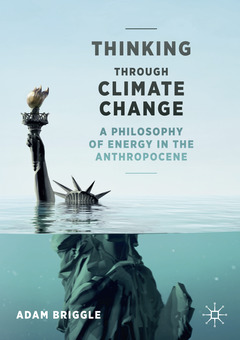Description
Thinking Through Climate Change, 1st ed. 2021
A Philosophy of Energy in the Anthropocene
Palgrave Studies in the Future of Humanity and its Successors Series
Author: Briggle Adam
Language: English
Keywords
kant; stephen m; gardiner; dale jamieson; mcKibben; wallace-wells
265 p. · 14.8x21 cm · Paperback
Description
/li>Contents
/li>Biography
/li>Comment
/li>
In this creative exploration of climate change and the big questions confronting our high-energy civilization, Adam Briggle connects the history of philosophy with current events to shed light on the Anthropocene (the age of humanity).
Briggle offers a framework to help us understand the many perspectives and policies on climate change. He does so through the idea that energy is a paradox: changing sameness. From this perennial philosophical mystery, he argues that a high-energy civilization is bound to create more and more paradoxes. These paradoxes run like fissures through our orthodox picture of energy as the capacity to do work and control fate. Climate change is the accumulation of these fissures and the question is whether we can sustain technoscientific control and economic growth. It may be that our world is about change radically, imploring us to start thinking heterodox thoughts.
1. Introduction.- 2. The Unnatural Growth of the Natural.- 3. Walrus Guts and Snake Brains.- 4. From Virtues to Volts.- 5. Trespassing .- 6. I Kant Believe You .- 7. First World Problems.- 8. Factor M .- 9. Putting Descartes before the Horse .- 10. Convenience.- 11. Decoupling .- 12. Prometheus 2.0.- 13. Look at the Beaver Looking.- 14. Invention is the Mother of Necessity.- 15. E, Neutrality, and Democracy.- 16. Magic, Machines, and Markets.- 17. The Honey Badger in the Coal Mine .- 18. Love, Death, and Carbon.- 19. Conclusion: Climate Change and the Future of Humanity.
Adam Briggle is Associate Professor and Director of Graduate Studies in the Department of Philosophy and Religion at the University of North Texas. He is the author of A Rich Bioethics (2010) and A Field Philosopher’s Guide to Fracking (2015).




